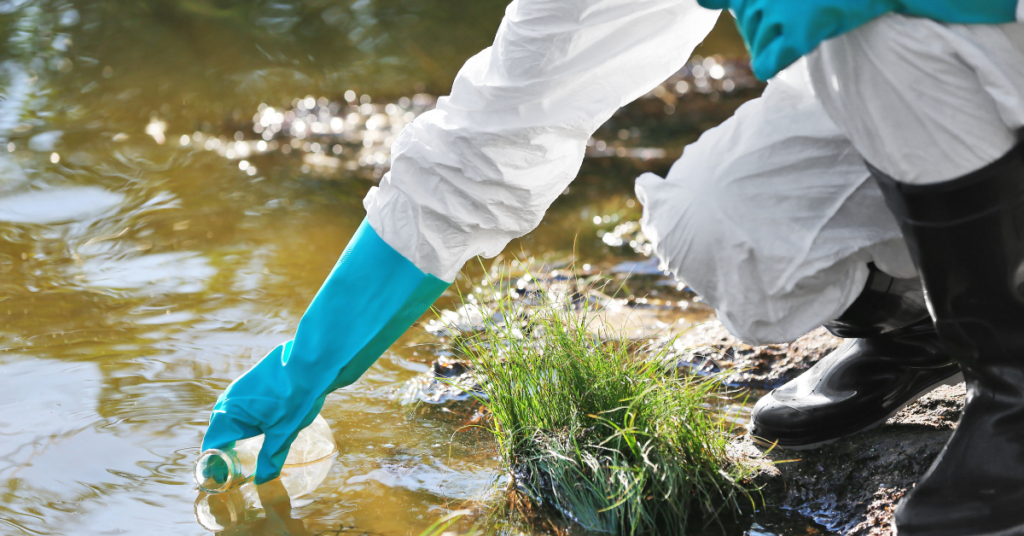Lack of Funding for the EPA Has Made Environmental Health Services More Important Than Ever

Despite mounting nationwide pressure from Americans to work towards building a sustainable future, the Environmental Protection Agency (EPA) has been sorely underfunded for years. And 2022 was no different.
While the Bipartisan Infrastructure Law from 2021 delivered funds for clean water programs and hazardous waste cleanups, the EPA’s infrastructure still leaves much to be desired.
Putting this into context, a quote from an EPA report in 2020 explains that the “EPA has been substantially ‘hollowed out’ from inadequate resources that have long been dangerously declining to a point where EPA is spending, in real dollars, less than half what the agency spent in 1980.”
In light of these recent developments, environmental health services across the country have become only more critical.
What does this mean for related organizations in the U.S.?
Talent is needed, and it’s needed now.
American Neighborhoods Inundated by Industrial Pollution
Simultaneous with the underfunding of the EPA, many American neighborhoods are experiencing historic levels of industrial pollution—especially in redlined regions.
According to recent reports from the American Lung Association, the number of Americans exposed to increased levels of air pollution is rising: 63.2 million citizens are exposed to poor air quality, an increase from 49.6 million in 2018.
Serving as just one example, the Valero Houston Refinery has earned a significant violation of the Clean Air Act for every single quarter of the past three years.
While laws are in place to punish facilities in such cases, many speculate that the consequences are too mild. Perhaps much of this is due to Congress’ continued neglect of the EPA’s enforcement division’s resources and staffing levels. Currently, the enforcement division is experiencing a 28% decline in staff compared to 2011.
Accumulating pollution violations like the ones from Valero’s Refinery have immediate, measurable effects on neighborhoods across America. Industrial pollution has long been linked to the detrimental impacts on human health.
What’s contributing to the rising rates of pollution?
Surprisingly, the vast majority of pollution comes from an incredibly small number of contributors in relation to the total: 33% of all of America’s toxic air pollution comes from .5% of total facilities. Yes, that’s one-half of one percent.
In light of the contemporary effects and advocacy from multiple organized environmental groups in the country, many hope that Congress will soon adequately support and fund the EPA and its enforcement division enough for it to function effectively and curb growing pollution rates.
We Can Wait, or We Can Hire Today
Burgeoning the hopes of environmentally conscious parties is the imminent House debate on bill H.R. 8294, which contains the 2023 funding for EPA, the Energy and Interior departments, and federal water projects.
While there is still plenty of heated debate in store, $1.92 billion for the Energy-Water and Interior-EPA bills alone are contained within the proposed spending package.
During speculation from experts that Congress may reverse course sooner rather than later, questions about talent abound.
Tim Whitehouse, executive director of Public Employees for Environmental Responsibility, explains that the “EPA needs to make sure it has the best available people and the proper expertise to see these enforcement cases through from beginning to end.”
As EPA hiring urgency and optimism for appropriate funding from the White House rises, many other environmental health organizations are setting their sights on talent acquisition efforts to ensure they have the best and brightest professionals working under their roof.
From environmental engineers and scientists to field and soil technicians, demand for environmental specialists is steadily climbing. It’s imperative that companies act sooner rather than later to acquire talent from a pool that is likely to become increasingly taxed.
RHM’s Environmental Staffing Solutions Can Help
The environmental industry is one with many varying specialties, challenges, and opportunities. When it comes to hiring in this highly specialized field, we know you need a partner who truly understands your business. At RHM Staffing, we specialize in sourcing leading candidates in a wide variety of environmental roles for our clients across the country. Contact us today to make your next hire with confidence.
